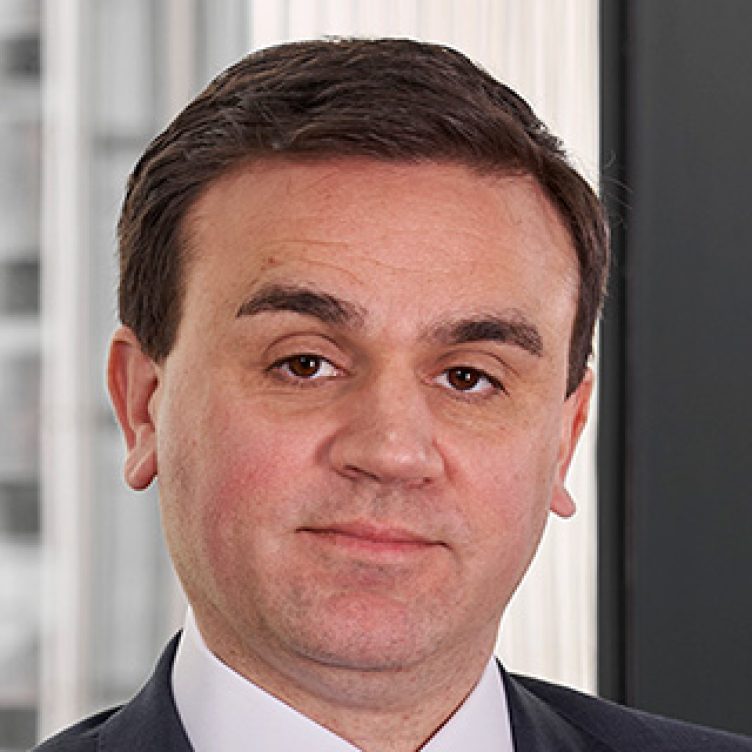Following their analysis of trends in commercial fraud claims in England and Wales, Stewarts’ team has looked to the future and developments that could shape the disputes landscape going forward.
Working together with Solomonic, we examined the most striking trends in the courts’ data including the volume, sectors and success rates of claims.
In this chapter partners Alex Jay, Mo Bhaskaran, Pia Mithani, Elaina Bailes and Marc Jones and senior associate Charlie Mercer look ahead to what will shape the landscape for fraud claims in the near future.
Economic headwinds
Most obviously, the current economic climate and any future downturn increases the potential for fraud claims. As Warren Buffett’s often-repeated aphorism goes: “only when the tide goes out do you discover who’s been swimming naked”. Those claims could arise from corporate insolvencies, which have increased sharply in the UK since the pandemic, or from the mini-banking crisis in early 2023 that has (to date) included the collapse of Silicon Valley Bank, First Republic Bank and Credit Suisse. There is also always the potential for alleged wrongdoing that emerges in these periods to result in securities claims by investors, as has already been the case with Credit Suisse.
International disclosure orders
There are several ongoing developments that will affect the shape of fraud litigation in the UK.
As we have previously commented, a new jurisdictional gateway came into force in England and Wales in late 2022 that allows the English courts to grant permission for applicants to serve disclosure orders on third parties based outside England and Wales. Prior to this, applicants would need to persuade the court that the application fell within one of the existing service gateways, for example that the respondent was a “necessary and proper party”.
The new gateway applies where the applicant seeks disclosure of information regarding either
- the true identity of a defendant; and/or
- what has become of the applicant’s property.
The application must be made for the purpose of proceedings that are or are intended to be commenced before the English court.
This is good news for victims of fraud. Although there will remain challenges (such as enforcing the order granted in other jurisdictions), it should mean that where a victim of fraud needs to obtain information about the identity of a fraudster or the location of misappropriated assets, it is likely to be simpler to obtain permission to serve an order for disclosure on (for example) a foreign bank or cryptocurrency exchange that holds that information.
Enforcement of judgments
The UK Ministry of Justice is currently considering responses to a consultation on whether the UK should sign up to and ratify the Hague Convention of 2 July 2019 on the Recognition and Enforcement of Foreign Judgments in Civil or Commercial Matters (“Hague 2019”). The government’s paper summarising its responses is expected to be published shortly.
Hague 2019 establishes common rules to facilitate the recognition and enforcement of foreign judgments between contracting states. Since the end of the Brexit transition period on 31 December 2020, there has been no comprehensive framework in place between the UK and the EU covering the recognition and enforcement of civil and commercial judgments and jurisdiction. The main convention that currently applies is the 2005 Hague Convention on Choice of Court Agreements (“Hague 2005”), which provides a framework of rules relating to exclusive jurisdiction agreements and the subsequent recognition and enforcement of judgments based on those agreements.
As things stand, therefore, Hague 2005 is limited and, where it does not apply, parties wishing to enforce an English judgment in the EU must rely on common law rules or any separate bilateral treaties with the relevant member state. This, in turn, means they will have to commence new proceedings, with the increased time, cost and uncertainty that brings.
The UK applied to re-join the Lugano Convention on Jurisdiction and the Recognition and Enforcement of Judgments in April 2020. This provides a comprehensive framework regarding jurisdiction and the enforcement of judgments between the EU, Switzerland, Norway and Iceland (offering similar advantages to the pre-Brexit position). However, the EU has not yet consented to that application. The government’s intention, therefore, is for the UK to sign and ratify Hague 2019. This would provide a set of common rules for the recognition and enforcement of judgments between the UK and EU (which has already acceded to it) and other jurisdictions.
If the UK were to join Hague 2019, it would not be a perfect solution. For example, certain types of disputes are excluded, including insolvency disputes and interim measures. It also does not address jurisdiction, meaning a risk of parallel proceedings would remain (although work has started on a separate convention to address this). However, the framework it provides would nevertheless improve the EU enforcement position post-Brexit.
Supreme Court decisions
Quincecare – Philipp v Barclays Bank UK PLC [2023] UKSC 25
The UK Supreme Court recently handed down a decision in relation to the Quincecare duty. The Quincecare duty takes its name from Barclays Bank plc v Quincecare Ltd [1992] 4 All ER 363. It has traditionally been understood as the duty of a bank to refrain from processing a payment instruction if it is “put on inquiry” that the instructions are the result of fraud and an attempt to misappropriate funds. Although Quincecare claims are not fraud claims as such, they are an important tool in the armoury of victims in offering an alternative route to recovering misappropriated funds.
As we have previously commented, the Supreme Court was asked to consider whether these claims only cover situations where the payment instructions are given by an agent (the High Court’s original decision) or where they were given by the customer directly (the Court of Appeal’s decision). In relation to that narrow point, the Supreme Court has now held that Quincecare does not cover such situations, thereby limiting the duty in that respect. However, in its landmark judgment, it also made a number of other significant findings, including clarifying that that the duty constitutes part of the general duty of a bank to act with reasonable care and skill when processing customer payments and that this duty only arises where the validity or content of the customer’s instruction is unclear or leaves the bank with a choice about how to carry out the instruction. More positively for claimants, it also serves to endorse at the highest court level the principles concerning a bank’s duty to enquire and refrain from processing payments believed to be attempts at defrauding the customer and confirms that Quincecare claims are not limited to corporate customers.
Limitation – Canada Square Operations Ltd (Appellant) v Potter (Respondent) (UKSC 2021/0139)
The Supreme Court is also due to issue guidance regarding the meaning and effect of section 32(1)(b) and (2) Limitation Act 1980, which (in short) postpone the commencement of a limitation period where a fact relevant to the claimant’s claim has been “deliberately concealed” by the defendant. Among other things, the Supreme Court is due to decide both what “deliberate” means in this context (ie whether recklessness is sufficient or actual knowledge is required) and the meaning of “conceal” (ie whether the defendant needs to have breached a legal duty to disclose). The Court of Appeal held (in short) that recklessness absent actual knowledge is sufficient and that concealing was not limited to a legal duty to disclose. As it stands, therefore, this exception to the normal limitation rules is interpreted broadly, which in turn is helpful for victims of fraud. We will see if the Supreme Court agrees.
Cryptoassets
We expect the number of cryptoasset claims to continue to increase, with English law continuing to be at the forefront of legal developments in this area. The industry continues to grow and, in recognition of that, legislative moves are now well under way in the UK to bring a broad range of cryptoassets under the same regulatory framework as applies to other financial instruments. The hope is that, in doing so, consumers will be better protected and fraud reduced, though it may also lead to an increase in regulatory litigation against cryptoasset service providers. In a more mainstream and regulated commercial environment, one might also expect see a continued increase in the variety of disputes concerning cryptoassets, moving beyond fraud to, for example, professional negligence and financial market disputes.
The UK’s fraud reporting agency, Action Fraud, recently found that there has been a 40% rise in crypto fraud in the UK over the last year, surpassing £300m for the first time. The willingness of the English courts to develop the law to accommodate victims of crypto-related fraud has certainly helped remove uncertainties and lower the barriers to obtaining effective remedies against fraudsters. Whether, as a result, there will be an increase in claimants reflecting the increase in fraud has yet to be seen.
You can find further information regarding our expertise, experience and team on our Fraud pages.
If you require assistance from our team, please contact us.
Subscribe – In order to receive our news straight to your inbox, subscribe here. Our newsletters are sent no more than once a month.











